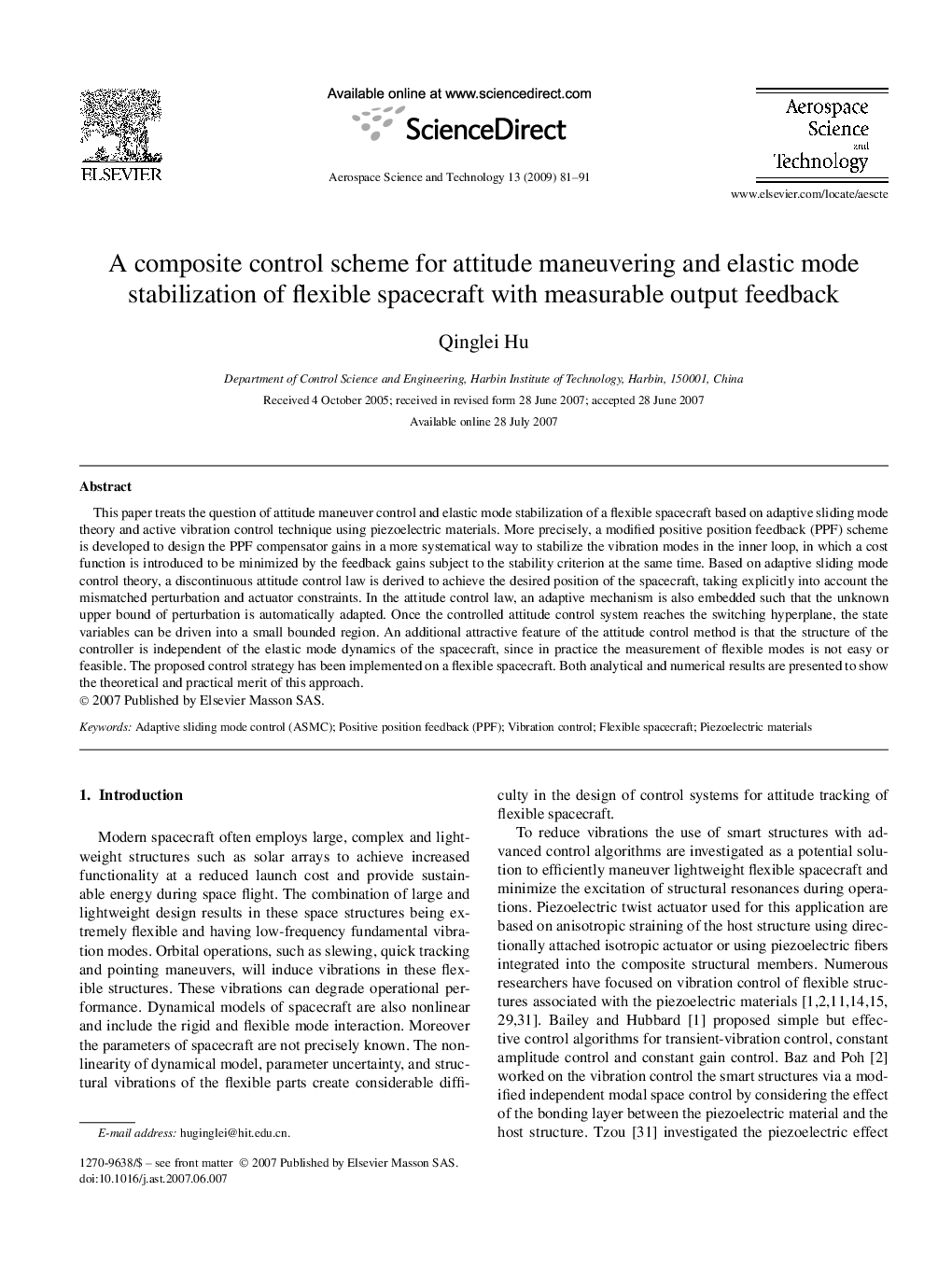| Article ID | Journal | Published Year | Pages | File Type |
|---|---|---|---|---|
| 1718894 | Aerospace Science and Technology | 2009 | 11 Pages |
This paper treats the question of attitude maneuver control and elastic mode stabilization of a flexible spacecraft based on adaptive sliding mode theory and active vibration control technique using piezoelectric materials. More precisely, a modified positive position feedback (PPF) scheme is developed to design the PPF compensator gains in a more systematical way to stabilize the vibration modes in the inner loop, in which a cost function is introduced to be minimized by the feedback gains subject to the stability criterion at the same time. Based on adaptive sliding mode control theory, a discontinuous attitude control law is derived to achieve the desired position of the spacecraft, taking explicitly into account the mismatched perturbation and actuator constraints. In the attitude control law, an adaptive mechanism is also embedded such that the unknown upper bound of perturbation is automatically adapted. Once the controlled attitude control system reaches the switching hyperplane, the state variables can be driven into a small bounded region. An additional attractive feature of the attitude control method is that the structure of the controller is independent of the elastic mode dynamics of the spacecraft, since in practice the measurement of flexible modes is not easy or feasible. The proposed control strategy has been implemented on a flexible spacecraft. Both analytical and numerical results are presented to show the theoretical and practical merit of this approach.
